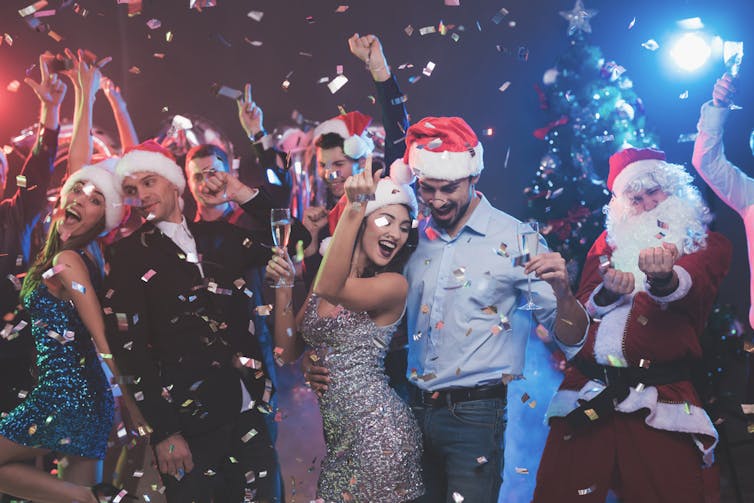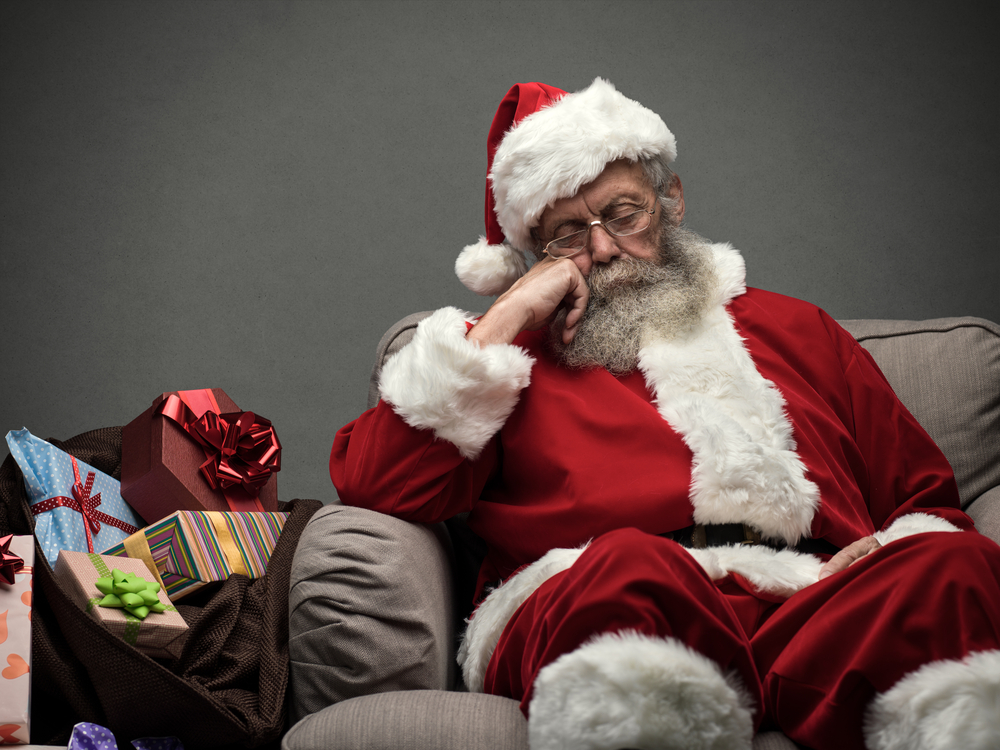The festive season seriously messes with your sleep – here’s how
If I were to design a laboratory experiment that reliably disturbed sleep and increased fatigue for eight to ten days, it would look a lot like the festive period. To understand why, you need to consider how normal sleep works.
Sleep is controlled by three things: the supply-and-demand relationship between sleep and wakefulness or “homeostasis” – in a nutshell, the longer we stay awake, the greater the pressure to sleep; the body clock (or circadian rhythm) which syncs our sleep-wake cycles with the 24-hour day so that we feel sleepier during darkness than during light; and psychological factors that calm us down in readiness for sleep.
Normally, these processes work in harmony. So we are most likely to fall asleep when sleep pressure is high, our circadian rhythm tells us it’s bedtime and our minds are calm.
Among otherwise good sleepers, events that disrupt sleep tend to affect just one of these factors at a time, and then only briefly, allowing us to take the effects in our stride. For example, the inconvenient daytime sleepiness resulting from an all-nighter can be reversed with one or two nights of good sleep. The twice-yearly disruption of our body clock by daylight saving adjustments soon passes. And difficulty getting to sleep when we’re concerned about events the following day is usually manageable.
But the festive season delivers a perfect storm that challenges all of these processes at once and then makes it difficult to catch up on lost sleep. The result is lingering fatigue.

Perfect storm. VGstockstudio/Shutterstock.com
How the festive period gets to our sleep
First, there’s a supply and demand imbalance. Participating in festivities means longer days and later bedtimes; fun needs time. But opportunities for compensatory lie-ins may be curtailed by, for example, family visits, high street sales or the demands of parenting. Paradoxically, the whole period is typically rounded-off by the international sleep deprivation fest of New Year.
On top of this, the festive period also interferes with the timing of those habits and routines that help to keep our circadian rhythm in sync (like getting-up times, mealtimes and exercise times). When routine dissolves, sync fluctuates, and sleep suffers.
Christmas also demands planning, which in turn generates anticipation and anxiety (things can go wrong). This can add to our pre-sleep stream of consciousness as “cognitive arousal” – alertness that delays sleep onset. Some of the earliest experiments in the psychology of insomnia found that we don’t have to be anxious to keep ourselves awake – we just have to think.
With homeostatic, circadian and psychological regulators under pressure, some people will struggle to sleep. But there are two further disruptive elements in this seasonal storm: food and alcohol.
Overeating, not uncommon at this time of year, is a risk factor for indigestion, which, in turn, is associated with insomnia. Alcohol, even in moderate amounts, can initially promote sleep. But ethanol (the active ingredient) is rapidly broken down in the body, so alcohol-induced sleep shows “withdrawal” disturbances later in the night. With higher levels of alcohol, these effects are amplified, with withdrawal leading to early awakening and, of course, a hangover. In short, the quality of alcohol-induced sleep is poor.
How to be festive and rested
![]() Chronic insomnia begins with sleep disturbances triggered by events, so managing sleep through these challenging periods is important. Avoid entering the festive period with a sleep debt. Don’t set yourself over-exacting standards of performance – you’ll fail. Compensate for lost sleep with an earlier night, a negotiated lie-in, or a 30 minute nap between midday and 4pm. And if your sleep needs help, download the free Sleepful app – it’s a present from Loughborough University.
Chronic insomnia begins with sleep disturbances triggered by events, so managing sleep through these challenging periods is important. Avoid entering the festive period with a sleep debt. Don’t set yourself over-exacting standards of performance – you’ll fail. Compensate for lost sleep with an earlier night, a negotiated lie-in, or a 30 minute nap between midday and 4pm. And if your sleep needs help, download the free Sleepful app – it’s a present from Loughborough University.
Kevin Morgan, Professor of Psychology, Loughborough University
This article was originally published on The Conversation. Read the original article.
Header image: Stokkete/Shutterstock.com

